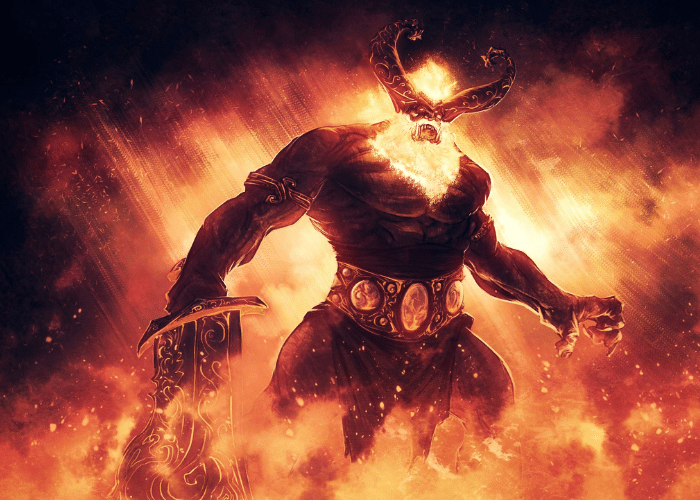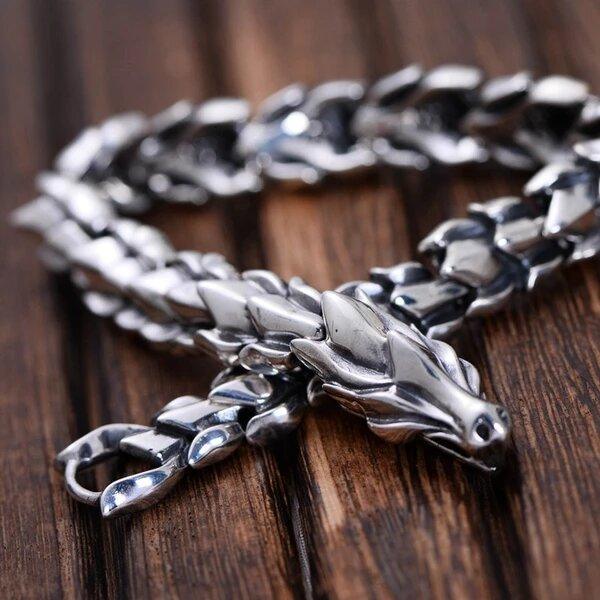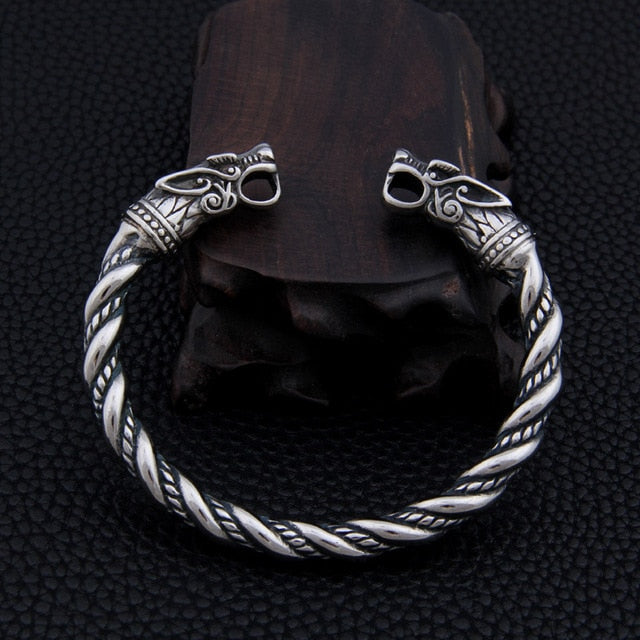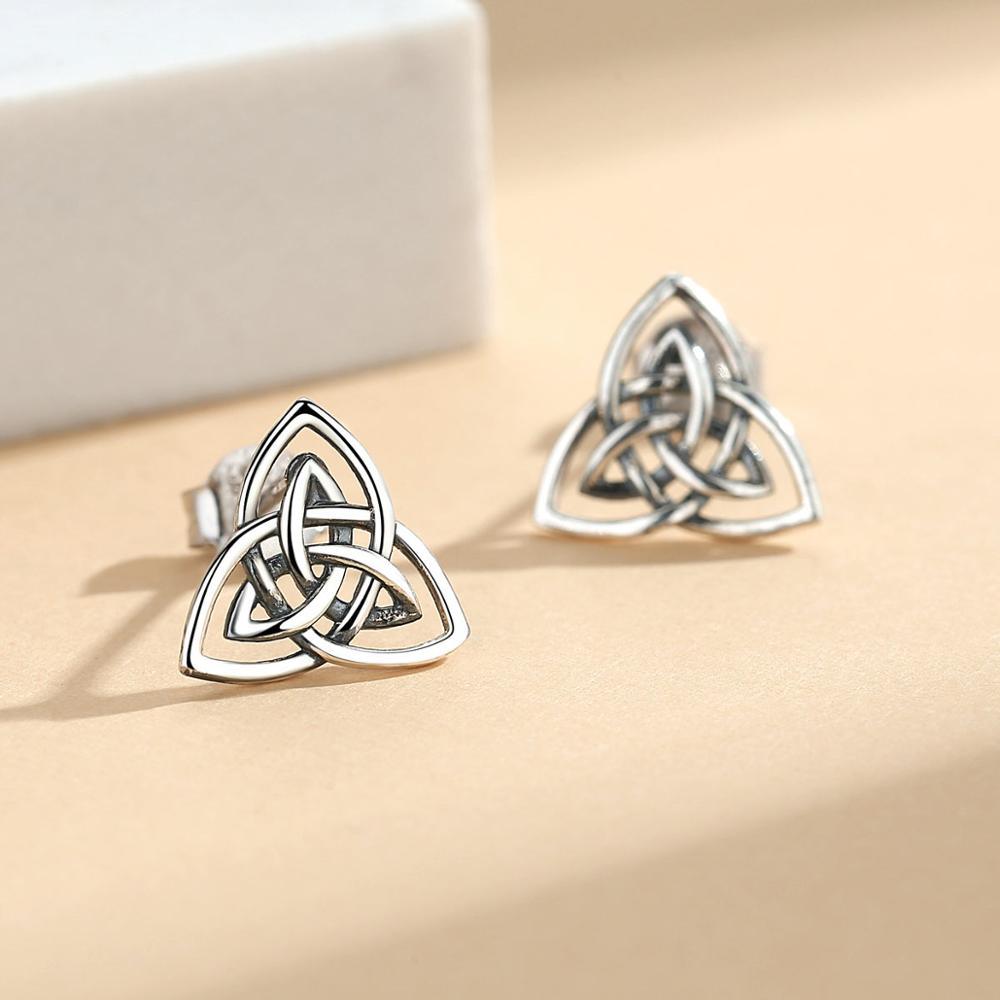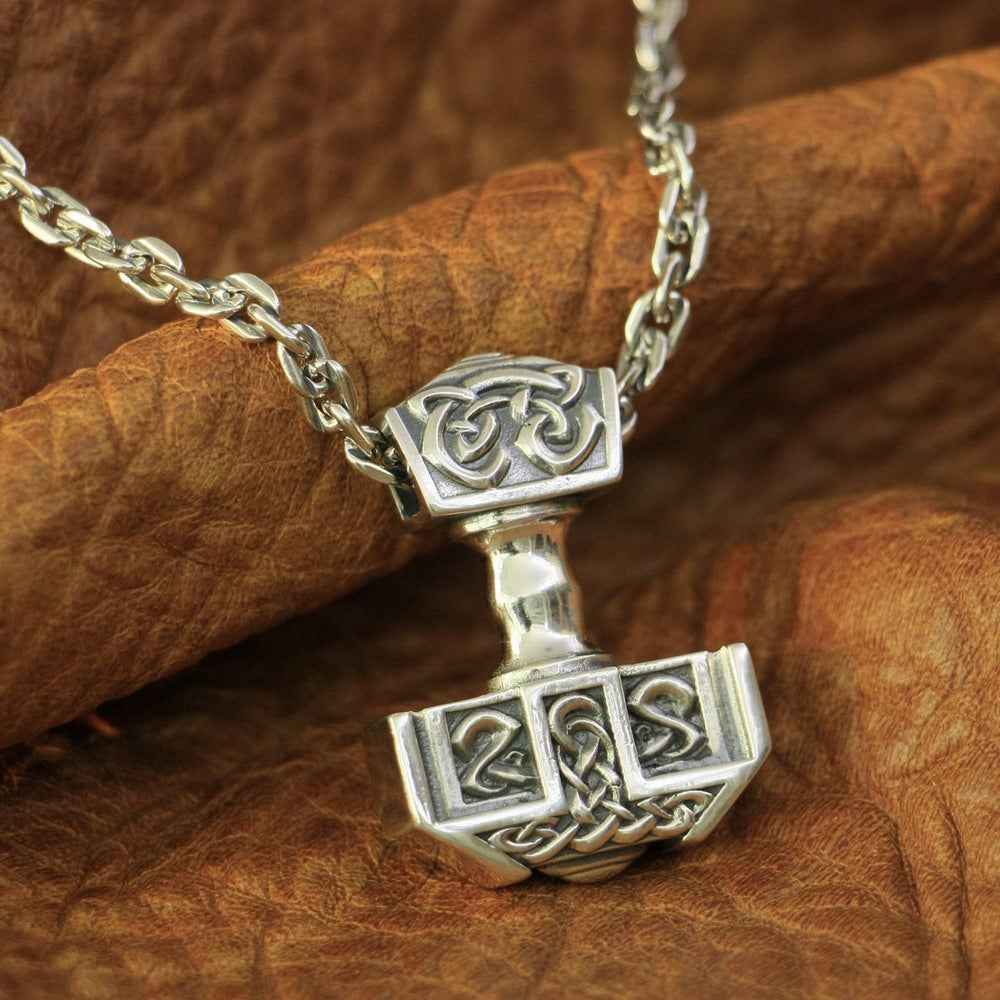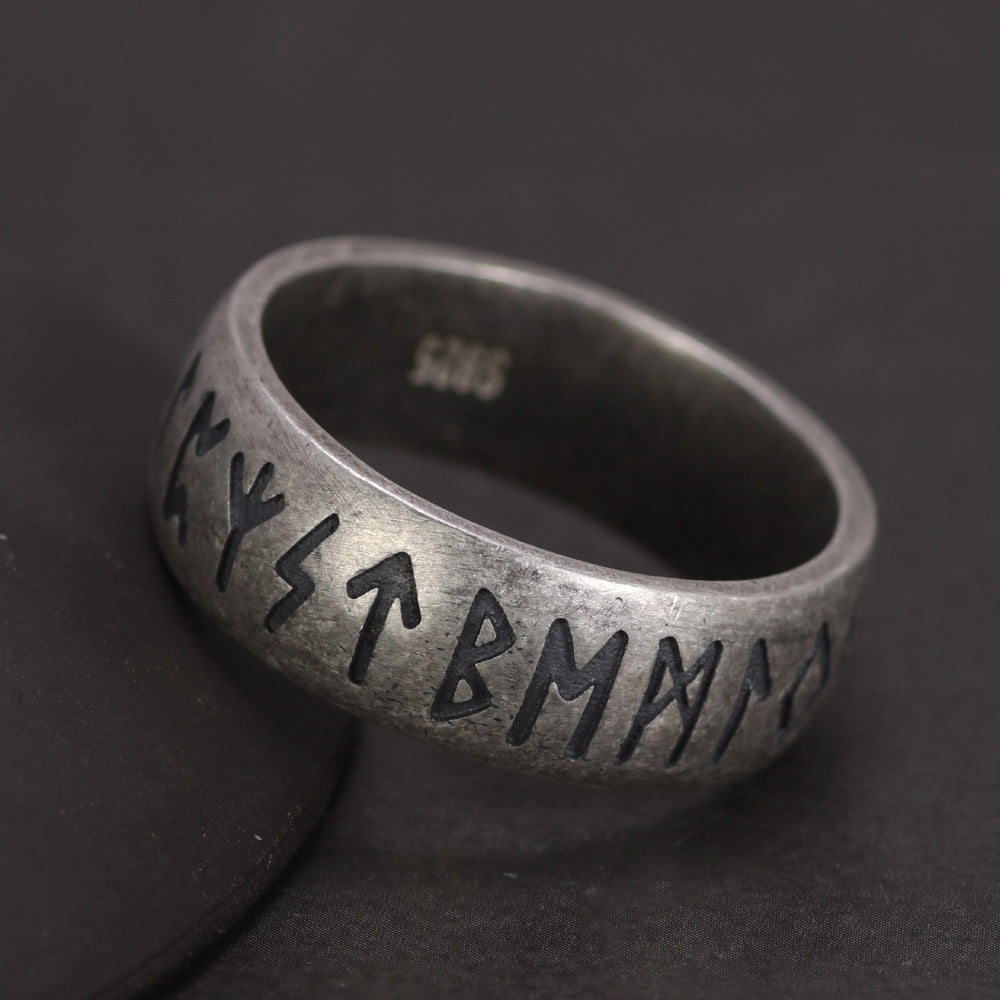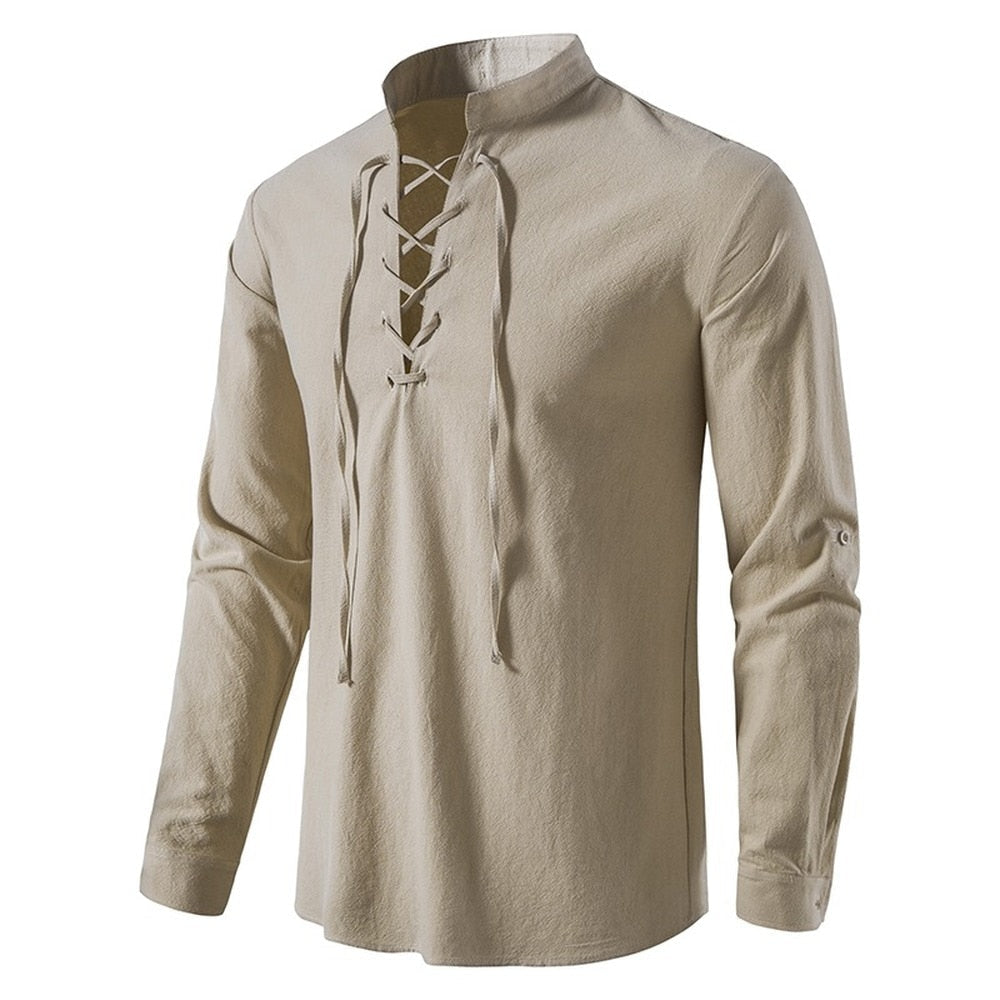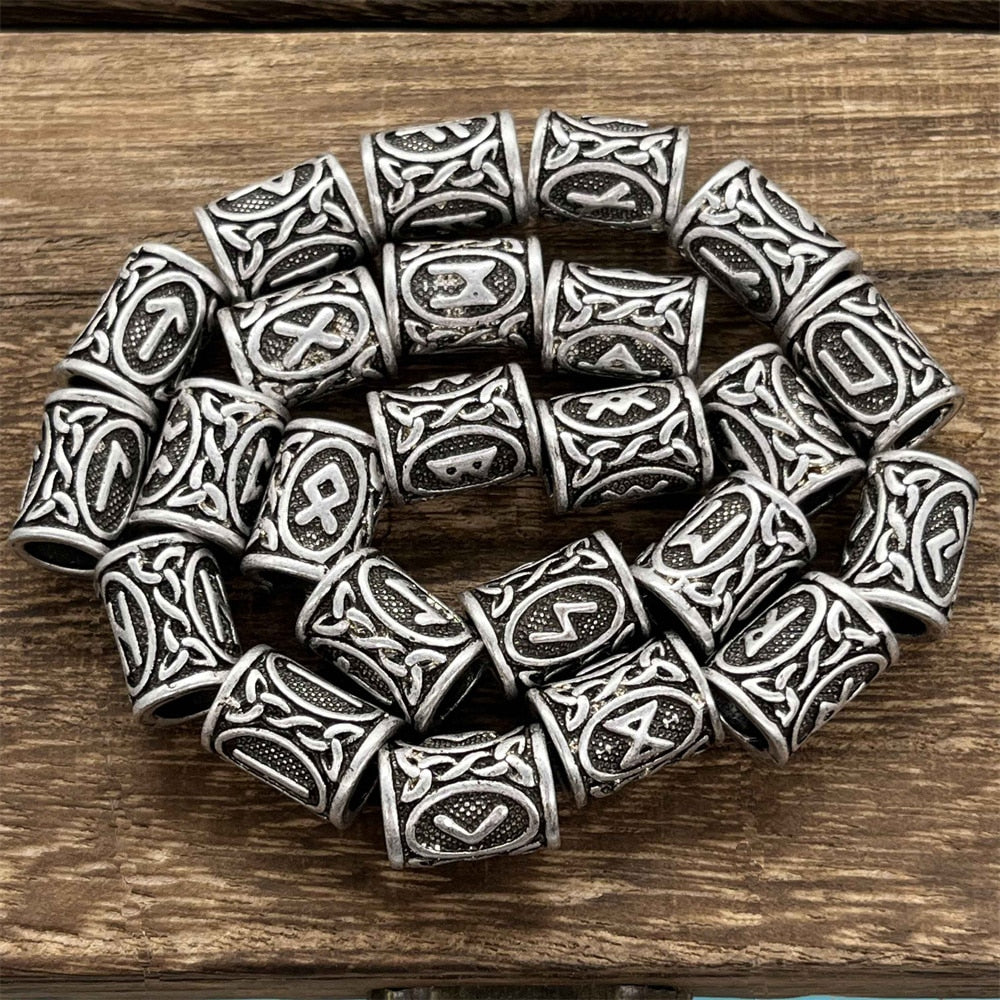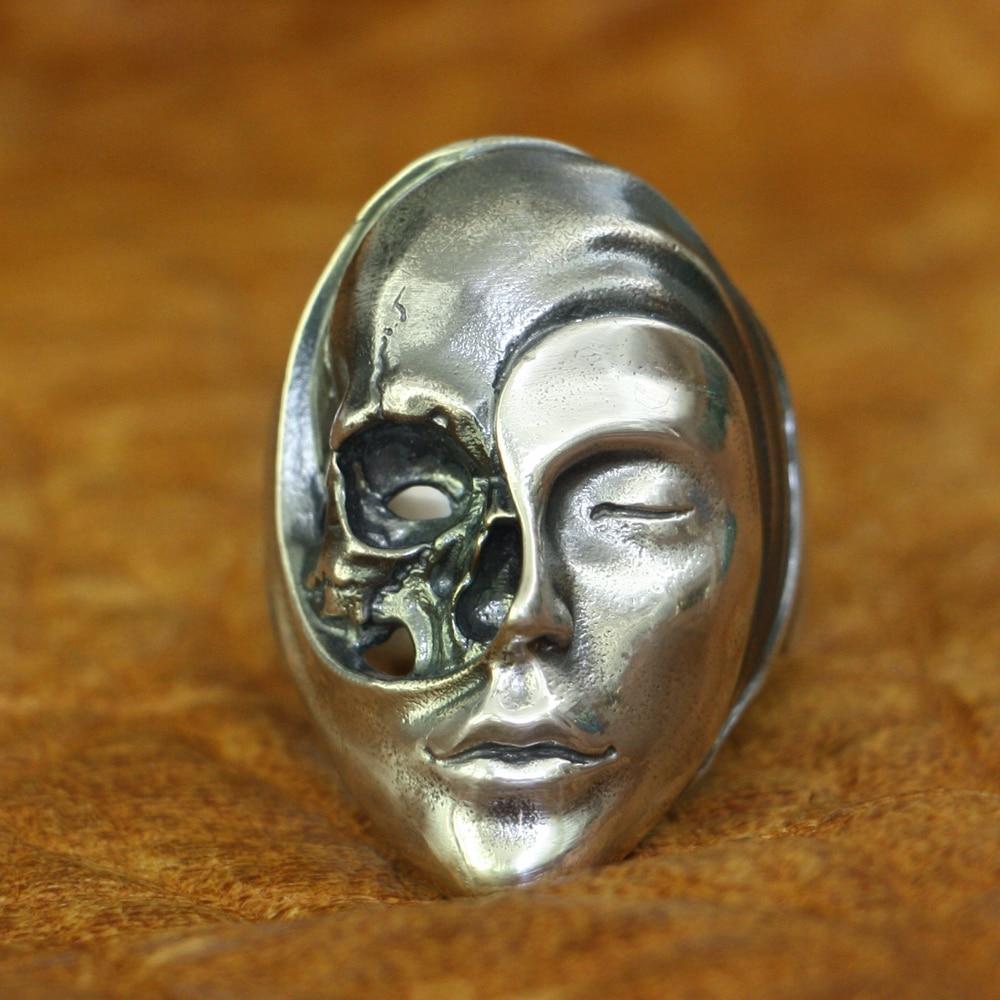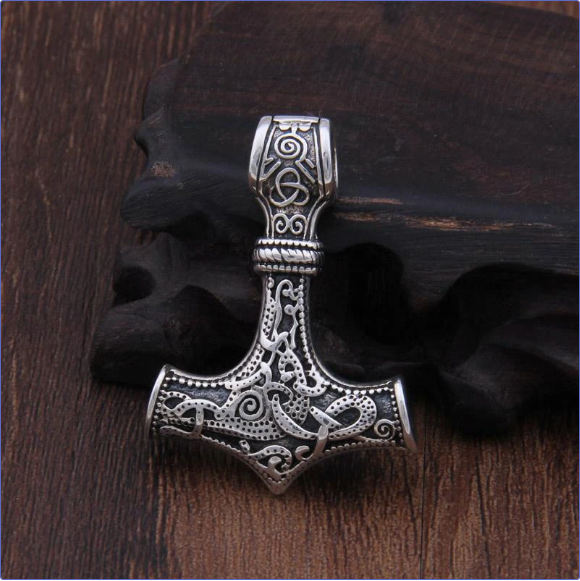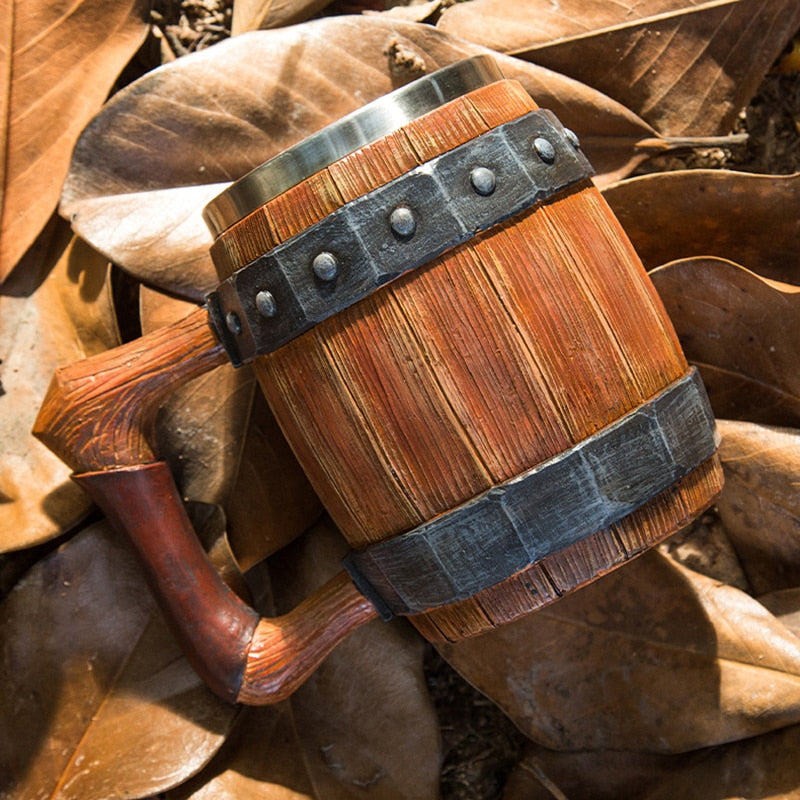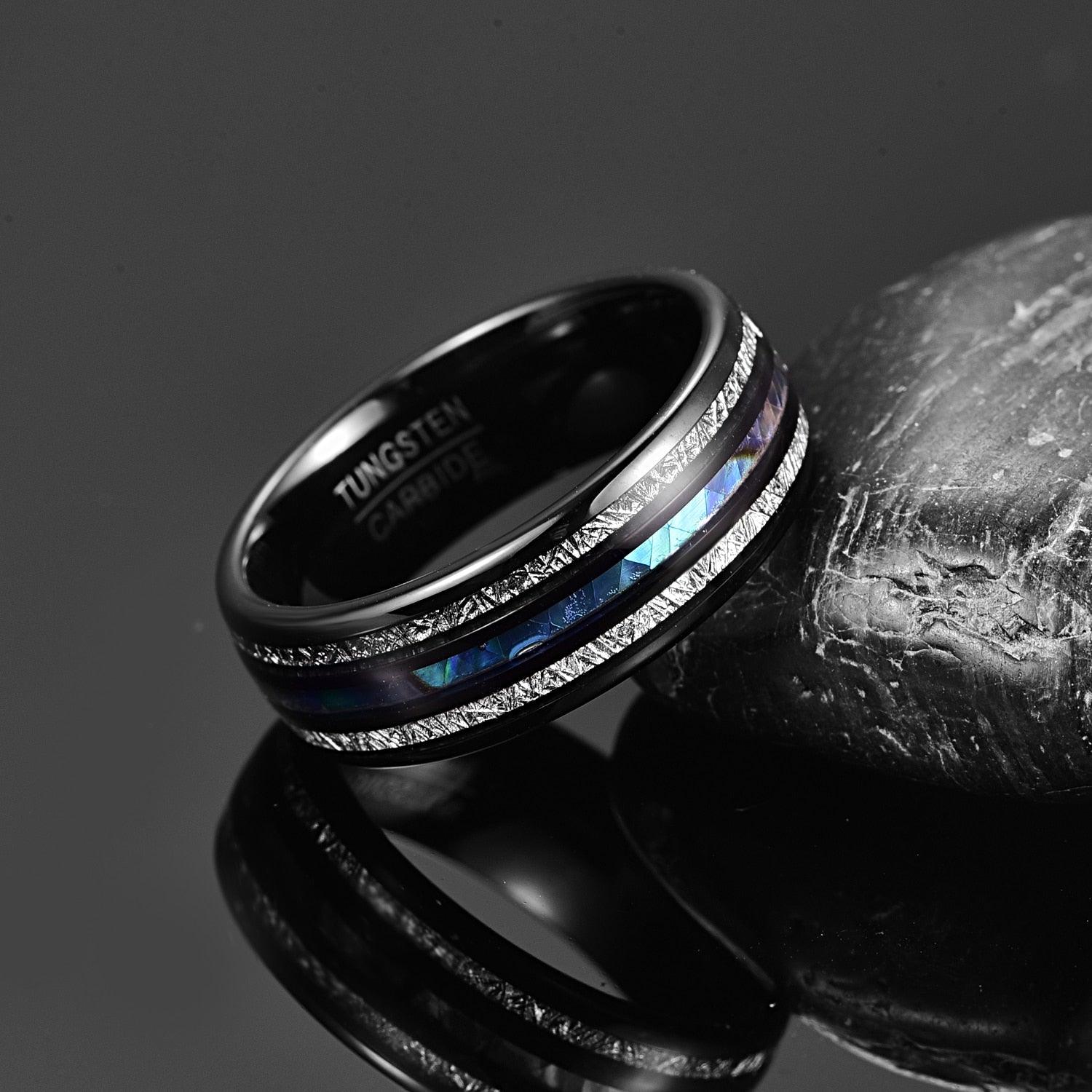The fire giant Surtr is one of the eldest beings in the cosmos. He was there at the beginning, when the three brothers Odin Vili and Ve crafted the cosmos from Ymir remains, and will be there at the end, during Ragnarok, when he will consume all with fire.

The Giant with the Flaming Sword (1909) by John Charles Dollman
Surtr is often depicted as wielding a flaming sword that shines brighter than the sun. His name means “Black” or “The Swarthy One” in Old Norse, and he is one of the main antagonists of the Gods during Ragnarok, arguably the one who will wreak the most havoc and destruction during that final war.
Surtr is often described as a jötunn (plural jötnar), but that description is somehow vague.
The jötnar are a varied group. While often depicted as giants, they are not necessarily giant in size. Some of them were said to be astonishingly beautiful while others were grotesque and ugly. Some are allied with the Gods, and even marry them (such as Skaði, who married Njord), while others are mortal enemies, such as Hrungnir, or Gueirrod, who tortured Loki into betraying Thor.
The one thing that all jötnar share is that they descended from Ymir, the primordial being, who reproduced asexually, creating the jötnar from his own body and flesh.
Ymir was eventually killed by Odin and his two brothers Vili and Vé, who dismembered Ymir’s body and created the world with it. As for Ymir’s descendants, the jötnar, they survived the event and sailed through Ymir’s blood until they eventually ended up in the realm of Jötunheimr, in one of the roots of the mighty tree Yggdrasil.

Despite being a jötunn, Surtr didn’t live in Jötunheimr. Instead, he spent his life guarding the frontier of the fiery realm Múspellheimr, the land of fire. During Ragnarok it is said that Surtr will finally leave his domains, leading the “Múspell’s sons” into battle against the Gods while waiving his bright flaming sword above him and bringing fire and destruction in his wake.
Surtr is one of many foes the Gods will face during Ragnarok, and arguably the worse.

Battle of the Doomed Gods (1882) by Friedrich Wilhelm Heine
The dragon Níðhöggr will bring the world closer to destruction by gnawing at Yggdrasill’s roots, but the World Tree survives. The World Serpent Jörmungandr will attack and mortally wound Thor, but the God of Thunder manages to defeat the serpent before dying. The might Fenrir will swallow whole the Allfather himself, but Odin's son Víðarr avenges him by rending Fenrir's jaws apart and stabbing it in the heart with His spear Gungnir. All these terrible enemies will inflict destruction and heavy losses to the Gods, but they will eventually be defeated. All but Surtr, who will remain standing, undefeated, and will end the war by enveloping the whole world in fire.
The only chance the Gods had against Surtur was lost when the God Freyr fell in love with the female jötunn Gerðr, who eventually became his wife. Freyr had a magic sword which fought on its own "if wise be he who wields it.” He gave his sword as a dowry to Gerðr’s father, the giant Skírnir, forcing him to fight Surtr during Ragnarok with an antler as weapon. According to the Edda, Freyr will die because of it, which could be interpreted that if he did not sacrifice his sword for love, he could defeat Surtr.
Freyr with his sister Freyja
Yet not all is lost. After the great battle, a new world was said to emerge from the seas and the whole cycle will begin anew.
Some sources claim that Surtr may actually be older than Ymir. Surtr's Influence in Iceland, a land full of volcanoes, remains strong today. When a new Icelandic island emerged from the sea as result of volcanic action between 1963 and 1967, it was naturally named Surtsey.

Surtsey eruption 1963
Sources:
Lindow, John. 2002. Norse Mythology: A Guide to the Gods, Heroes, Rituals, and Beliefs. Oxford University Press. ISBN 0-19-515382-0
Orchard, Andy. 1997. Dictionary of Norse Myth and Legend. Cassell. ISBN 0-304-34520-2
Simek, Rudolf. 2007 [1993]. Translated by Angela Hall. Dictionary of Northern Mythology. D.S. Brewer. ISBN 0-85991-513-1
Jesse Byock (2005) Snorri Sturluson, The Prose Edda. 1st. edition. London, England: Penguin Books Ltd. ISBN-13 978-0-140-44755-2
